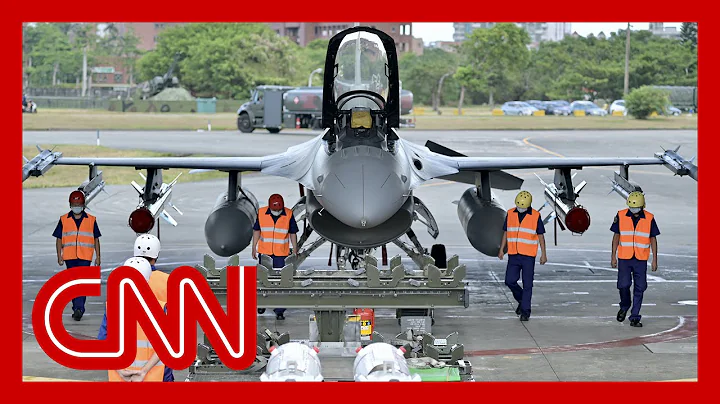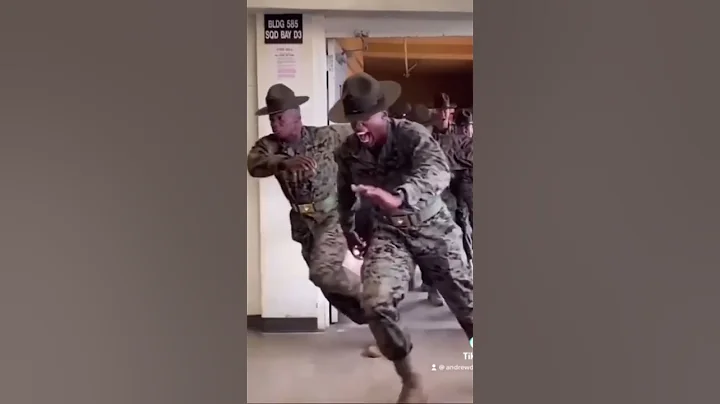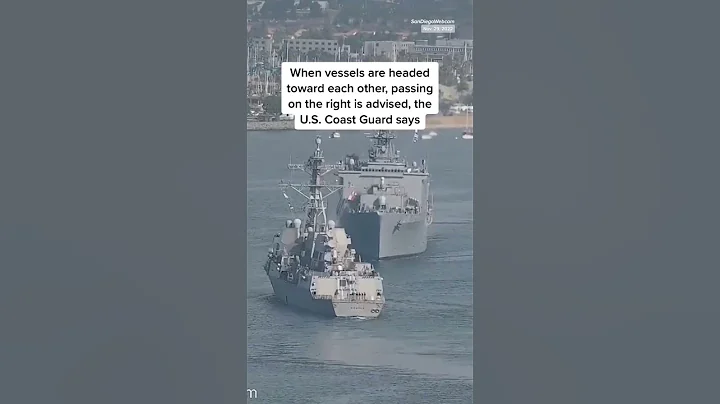Once it comes true, it will be the first time that Japan has sent similar personnel to Taiwan after the American Institute in Taiwan has active army, navy and air forces stationed there. It will also be the first time Japan has sent personnel to Taiwan since Japan sent a retired self-defense officer to Taiwan in 1996. The second major change.
html On the 17th, Yang Jiechi, member of the Political Bureau of the CPC Central Committee and director of the Office of the Central Foreign Affairs Commission, had a phone conversation with Japan’s National Security Agency chief Akiha Takeo.
Yang Jiechi said that at present, new and old issues in China-Japan relations are intertwined and highlighted, and difficulties and challenges cannot be ignored.
Recently, Japan has been making small moves on the situation in the Taiwan Strait. Some observers asked: As a "supporting actor" in the situation across the Taiwan Strait in the past, Japan is now gradually stepping into the "protagonist" stage?

According to Japanese media reports, the Japanese government plans to dispatch a civilian active-duty employee of the Ministry of Defense to the "Japan Taiwan Exchange Association Taipei Office", Japan's window agency for Taiwan affairs, instead of a "military attaché" of the Maritime, Land, and Air Self-Defense Forces.
As we all know, since the normalization of diplomatic relations between China and Japan in 1972, Japan and Taiwan have had no diplomatic relations. Therefore, the "Japan-Taiwan Exchange Association Taipei Office" has actually assumed a role similar to an "embassy", and Japanese politicians and democratic parties have Contacts between the party and the authorities must also be assisted through the "Japan-Taiwan Exchange Association".

Over time, the status of the "Japan-Taiwan Exchange Association" rapidly improved and became an important channel for exchanges between Japan and Taiwan.
As the United States and Japan increase their attention to the situation in Taiwan, Japan's attempts to add a "diplomatic color" to the association have become increasingly unabashed.
On New Year's Day 2017, the name change of the "Japan-Taiwan Exchange Association" became a landmark event in the "soft breakthrough" between Japan and Taiwan after Tsai Ing-wen took office. At that time, the "Japan-Taiwan Exchange Association" was still called the "Exchange Association." This name change blatantly juxtaposed Japan with Taiwan, and the attempt to create "one China, one Taiwan" was obvious.
The Japanese Ministry of Defense originally stationed a retired military attache in the "Japan-Taiwan Exchange Association". The Taiwan Strait crisis that broke out in 1996 was believed to be caused by insufficient military intelligence collection. Therefore, in 2003, the Taipei Office of the Japan-Taiwan Exchange Association established the position of "Security Responsible Director", and the Ministry of Defense dispatched retired Major General Nagano Yoichi to serve.
However, because he is not an active official, the information obtained by the "security officer" must be sent back to Japan through diplomatic channels, and he cannot directly contact the Ministry of Defense. It must be communicated through layers of contacts.
After the Russia-Ukraine conflict, there were voices in Japan saying that the intelligence communication channels between Japan and Taiwan should be strengthened. Media analysts believe that sending active Ministry of Defense officials can fill this gap in intelligence exchanges, and if military attachés are sent, I'm afraid it will cause strong dissatisfaction in mainland China.
So they wanted to play a "side ball": sending a civilian official would not be so eye-catching, but it would also have the actual effect of strengthening intelligence connections.

And it is worth noting that this was the first disclosure by Japanese media. Japanese officials have not yet confirmed it. Taiwan’s so-called "Ministry of Foreign Affairs" and "Ministry of Defense" refused to respond directly to the matter.
Some scholars analyzed that news announcements about Taiwan-Japan affairs should be based on the Ministry of Foreign Affairs of Japan. Some specific media often make rumors, but in the end they never come true. It is difficult to say that the current situation is final, because the Ministry of Defense will finally finalize it after many discussions. If mainland China reacts strongly, it may still end without a cure.
However, some analysts believe that Japan is accustomed to using the sausage-slicing strategy to move forward step by step. Now it may be to send active-duty civilian officials to Taiwan, and the next step may be to send active-duty military personnel or increase the number of people stationed in Taiwan.
And whether they are civilian or military, they are essentially active officials.In recent years, Japan and Taiwan have been trying to gradually enhance the diplomatic color of the "Japan-Taiwan Exchange Association" through the strategy of " boiling frogs in warm water ".
Judging from Japan’s recent actions against Taiwan, Japan’s involvement in Taiwan Strait affairs does not stop there.
Recently, the Japanese Ministry of Defense revealed that it also plans to establish an integrated commander to uniformly command the use of the Army, Navy and Air Self-Defense Forces, as well as an integrated command to support the integrated commander, in order to deal with China.
Japanese media said that Japan believes that China's maritime operations are "increasing" and is worried about "something happening in Taiwan." At the same time, it must also pay attention to new areas of security in space, the Internet, electromagnetic waves , etc., so it is necessary to establish a new specialized position. , to improve mobility.
In addition, the Japanese ruling party Liberal Democratic Party rarely added the statement " the importance of peace and stability in the Taiwan Strait" in the just-passed amendment to this year's "Basic Guidelines for Economic and Fiscal Operations and Reforms."
This basic policy is a policy that points out the important issues of the government and the direction of budget preparation for the next year. It crosses departments and is led by the Prime Minister to promote reforms. Its importance is self-evident.
Moreover, in the face of the upcoming NATO summit at the end of June, sources revealed that Japanese Prime Minister Kishida Fumio is not only willing to consider attending, but will also coordinate positions with all parties on the Ukraine war and the situation in the Taiwan Strait.
It seems that Japan, which once played a "supporting role" in Taiwan affairs, is now gradually giving itself a "protagonist halo", releasing test balloons, observing China's reaction, and considering its next move.
2
On Taiwan-related issues, the Japanese government is slicing sausages forward, and politicians are also busy building momentum.
Among them, former Prime Minister Shinzo Abe jumped the highest.
Last Sunday, Abe once again mentioned the topic of Taiwan at a forum, saying that he wanted to "tighten the ties between Japan and the United States, Japan, the United States, Taiwan, Japan, the United States, India and Australia, as well as with like-minded countries" because "creating an It is very important for China to give up the use of force to unify Taiwan."
He reiterated that "if Taiwan has trouble, Japan has trouble," claiming that Japan needs to fundamentally strengthen its defense capabilities and then focus on the U.S.-Japan alliance to improve its deterrence against mainland China.
This paragraph of wording can be regarded as a phased summary of Abe’s frequent public remarks on Taiwan-related issues over the past six months.
On Taiwan-related issues, Abe’s logic can be roughly divided into three steps.
The first step: link the security of Taiwan, China and Japan.
At the end of last year, Abe falsely claimed at a meeting organized by a Taiwanese think tank: "If something happens to Taiwan, something will happen to Japan." The reason is that "Taiwan is very close to Japan," only about 100 kilometers away.
Therefore, "something goes wrong in Taiwan" will be Japan's "existential crisis situation."
This rhetoric has greatly confused some Japanese people, but in fact it cannot withstand scrutiny. If this argument is feasible, wouldn’t neighboring countries on the continent be able to interfere in other countries’ internal affairs on this basis?
The second step: Since it may constitute an "existential crisis situation", it can be deduced that Japan must increase defense spending and achieve "remilitarization."
The most typical one is the "nuclear rant" once released by Abe.
Abe said that in view of the situation between Russia and Ukraine, Japan should explore issues related to "nuclear sharing" with the United States. Look, he can no longer hide his ambition to move Japan towards the pursuit of nuclear weapons .
Some French scholars have noticed that "Japan has gone through the pure defense stage, and now what the outside world sees is an unconstrained military force."
This "unconstrained" is exactly what Abe wants.

When he was still prime minister, he made many changes to Japan's security-related policies and the Self-Defense Forces Act, such as allowing the right to collective self-defense under limited circumstances. This provides the possibility for Japan to provide some support when there is so-called "trouble in Taiwan."
Abe has also called countless times to amend Article 9 of the Constitution to make Japan a "normal country" with a "normal" military and "normal" power to declare war.
This year marks the 75th anniversary of the promulgation of the Japanese Constitution . Some media predict that if the ruling party wins the upper house election in July, the Kishida administration is likely to speed up discussions on amending the constitution.
The third step: Externally, continue to hold the United States firmly and consolidate the Japan-U.S. alliance.
Right-wing politicians like Abe know very well that if they want to "block China's rise and rejuvenation," Japan alone cannot do it. It must hold back the United States.
Abe has mentioned several times, "If something happens to Taiwan, it means something happens to Japan, and it also means something happens to the Japan-US alliance." He also wrote a letter to the Los Angeles Times, publicly calling on the United States to abandon its "strategic ambiguity" policy on the Taiwan issue.
For many similar provocative remarks by Abe related to China, the Kishida regime has denied some of them, while others have just ignored them.
Abe, does he still have political influence?
The title of an article in the British "Economist" magazine gives its answer: "Shinzo Abe remains important in Japan."
The article quotes the author of Abe's first English biography "Iconoclast: Shinzo Abe and the New Japan" Harris's statement: "Kishida is not the issue setter in Japan, Abe is."
3
Xiang Haoyu, a distinguished researcher at the Asia-Pacific Institute of the China Institute of International Studies, analyzed the "One Knife" analysis and said that Japan's recent negative mistakes involving the Taiwan Strait The trends are roughly divided into three categories:
The first is to strengthen exchanges with Taiwan. The latest example is the report that officials from the Ministry of Defense will be stationed in Taiwan. If this is true, Japan wants to make a breakthrough in its relations with Taiwan. According to the principles of the four political documents between China and Japan and Japan's commitment, Japan's exchanges with Taiwan cannot violate the one-China principle and can only maintain unofficial relations with Taiwan. If current Ministry of Defense officials are really stationed in Taiwan, this will actually break the post-war framework of Japan's relations with Taiwan;
The second is to promote the "China threat theory", Japan uses the media and right-wing politicians headed by Abe to The Taiwan issue and the Russia-Ukraine conflict exaggerate the "China threat" internally to incite the public's awareness of crisis and create a favorable public opinion environment for increasing defense budgets and amending the peace constitution ; externally they are to serve the "Indo-Pacific strategy" and to promote cooperation with The United States provides an excuse to join forces to contain and contain China.
For them, when they talk about the Taiwan issue or push forward in their interactions with Taiwan, 30% of them are worried that a conflict in the Taiwan Strait will endanger the outlying islands of Okinawa, especially the dispute over the Diaoyu Islands. But the more important consideration is to use the Taiwan issue as a starting point to artificially create an "external crisis" in order to break away from Japan's post-war constraints and promote the normalization of the country.
The third is to pull the United States to jointly put pressure on China. Japan's current purpose is to bring the United States in. Japan has been saying during this period that "if there is something wrong in Taiwan, there is something wrong with Japan." In fact, the second half of the sentence is "something is wrong with Japan." It's equivalent to something happening in the United States." Because the US-Japan alliance means that the United States has an obligation to assist Japan. Some people in Japan hope that the United States will clarify its Taiwan strategy as soon as possible. In this way, Japan will be able to unscrupulously promote military deregulation and other agendas with the United States standing in front of it.
Air Force expert Fu Qianshao analyzed the "Make a Knife" and said that Japan's dispatch of active-duty officials to Taiwan this time was said to be for intelligence collection, but in fact it was the US and Japanese Taiwan authorities making corresponding military preparations.
He pointed out that the collection and sharing of intelligence information is actually a military operation, and we should pay close attention to it. As can be seen from the Russia-Ukraine conflict, NATO countries say they cannot send troops Ukraine , but in fact it does not hinder them. The sharing and execution of intelligence with the Ukrainian army may seem fine in peacetime, but it will have an important impact on military operations in wartime.
Fu Qianshao reminded that we must be highly vigilant and can cut off this military connection if necessary. We have both soft and hard hands. hard means, once necessary we can destroy their land-based, sea-based, space-based, space-based related system equipment, soft means, such as electromagnetic suppression and electromagnetic reconnaissance. We now have these platforms, such as electronic reconnaissance aircraft, communication command aircraft, electronic jammers, etc. We can then strengthen drills and preparations in this area.

Xiang Haoyu believes that a very important reason why Japan is so unscrupulous on the Taiwan issue is that Japan-US relations are in the "honeymoon period." Japan has identified the so-called "Indo-Pacific strategy" that the United States wants to promote to contain China, and it cannot do without Japan. Therefore,
also wants to take this opportunity to exchange for Japan's more equal status in the US-Japan alliance and gain greater international influence by acting as a helper and "pawn" for the United States.
In the view of Japan's Liberal Democratic Party , the Russia-Ukraine conflict is triggering a major adjustment in the international order after the Cold War . Now is a golden window period for Japan to get rid of post-war constraints and realize national normalization.
Japan’s current situation of low birthrate and aging population is severe, and its national strength is on a declining path, but it still has a prominent economic and technological impact. If it does not seize the opportunity now, it is likely that there will be no opportunity again in the future. This actually reflects the extremely anxious mentality in Japan now.
Xiang Haoyu said that Japan's current social trends and political ecology have become extremely right-leaning and conservative. In this atmosphere, criticizing China, Russia and North Korea has become a kind of "political correctness."
Although Kishida himself is a stable conservative, facing the pressure of the Senate election in July, he had to cater to the domestic right-leaning populist political atmosphere, and even made extremely inflammatory remarks such as "Today's Ukraine, tomorrow's East Asia." As public opinion in Japanese society has fallen into a vicious cycle of constantly self-reinforcing the perception of "external threats", political polarization and populism have become increasingly intensified, and the Taiwan issue has been elevated to a national security issue that affects Japan's "national destiny". The original attitude was rational Politicians are inevitably caught up in this, and there is almost no room for rational cognition and discussion in Japanese society.

html On the 17th, Yang Jiechi, member of the Political Bureau of the CPC Central Committee and director of the Office of the Central Foreign Affairs Commission, had a phone conversation with Takeo Akiba, the director of the National Security Council of Japan.





















